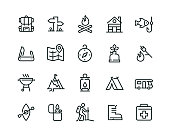Blog entry by Beth Curry
After several months of employing these tactics, a positive change was observed in students' attitude towards essay writing, their overall performance had improved and their writing skills had dramatically enhanced.
Apart from the strategies mentioned above, it's also essential for students to take care of their physical and mental health. Regular physical activity and a balanced diet can enhance cognitive function and concentration. Similarly, practicing mindfulness techniques, such as meditation, can help manage stress and maintain a positive mindset.
Additionally, the adoption of effective learning methods plays a significant role in managing schoolwork and homework. Every student has unique ways of learning — some might find auditory learning more beneficial while others might prefer visual or kinesthetic learning. Identifying the most effective learning style can greatly enhance understanding and absorption of information. Implementing techniques such as flashcards, mind maps, or online quizzes can also make studying more interactive and enjoyable.
Another demonstrable advance shaping writing workshops for middle school students is shifting from writing mechanically towards writing with context and purpose. Meaning, students are no longer writing just to practice the skill, but they are composing stories, poems, articles, and essays that address pertinent global issues like climate change, mental health, social equality, etc. Such a change in the workshop structure helps to spark their creativity, develop critical thinking skills, and broaden their worldview.
Meet Mrs. Jackson, an English teacher who has been teaching Language Arts for over ten years. She started noticing that many children struggled to write comprehensive and well-organized essays. Even though they had a good understanding of grammar and vocabulary, it was the composition, arrangement, and structure of an essay that often posed a challenge.
Similarly, to pique student’s interest and enhance their writing skills, workshops are leveraging techniques like project-based learning and experiential writing. This could involve students documenting an experiment as a science report, writing an account of a historical event in a journalistic style, or composing short stories in certain literary styles. These real-world writing scenarios create an appreciation for the relevance and practical application of effective writing skills.
These digital tools offer more than just managing assignments. They also offer intuitive interfaces, communication tools, and in-built analytics. The modern interfaces make options readily available ensuring quick and easy navigation for tasks. Communication tools ensure effective interaction where teachers can send reminders or additional resources, and students can ask questions or clarify doubts. The analytics sections can provide insights about individual student's progress, allowing teachers to identify and address problem areas in teaching or learning.
Mrs. Jackson began incorporating detailed essay writing lessons into her curriculum. These laid emphasis on the structure of an essay, the importance of maintaining a consistent argument, and tips for effective closure. She illustrated each lesson with real-life examples, helping students understand better.
One substantial advancement in middle school writing workshops is the integration of tech-based educational platforms. These platforms, such as Google Classroom and Microsoft Teams, provide an avenue for students to learn and write in a collaborative environment, instigating an occasional peer-review process. Students can share their compositions with their peers and discuss their writing. It not only enhances their communication abilities but also improves their ability to give and accept constructive criticism, fostering a positive learning environment.
To conclude, digital technology's development to manage homework and schoolwork is undeniably a significant advancement in education. It has reduced unnecessary paperwork, streamlined workflow, supported optimal communication, and promoted interactive learning. EdTech mishaps such as missing homework or lost assignments are rapidly becoming a thing of the past. These tools provide an efficient solution to traditional problems, thereby enhancing the overall teaching and learning experience in the education sector.
A case study carried out in a middle school in Melbourne, Australia explores the approach and strategies adopted by teachers to instill essay writing skills in children. Middle school students are typically aged between 10 to 14 years, a crucial period for nurturing writing skills as they are on the verge of transitioning to high school.
 Furthermore,
AI can continuously track and analyse a student’s progress,
providing valuable feedback and suggesting suitable improvements.
This feature is not merely advantageous for students but
significantly assists teachers in monitoring the development and
potential struggles of their pupils in real time.
Furthermore,
AI can continuously track and analyse a student’s progress,
providing valuable feedback and suggesting suitable improvements.
This feature is not merely advantageous for students but
significantly assists teachers in monitoring the development and
potential struggles of their pupils in real time.
